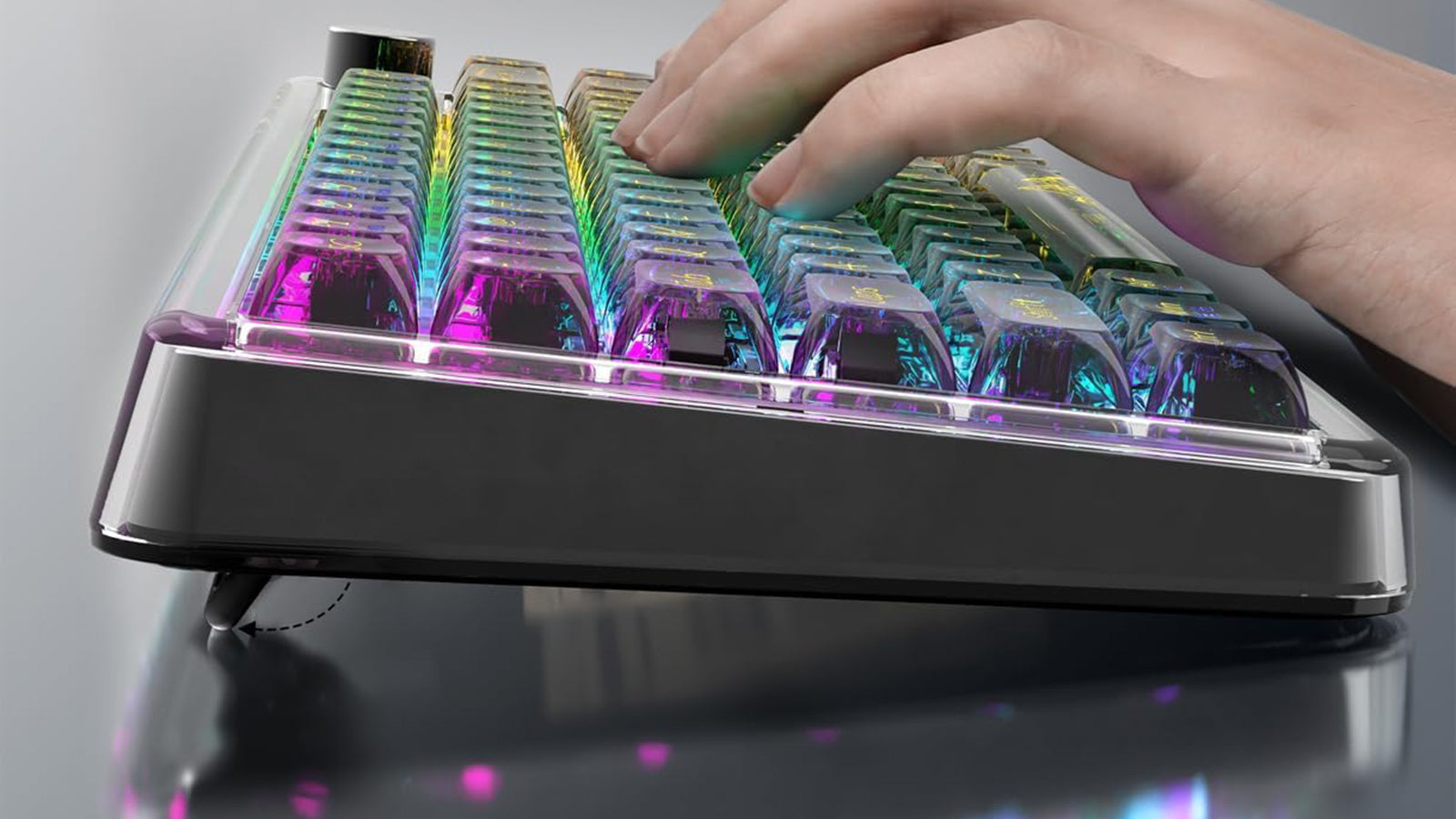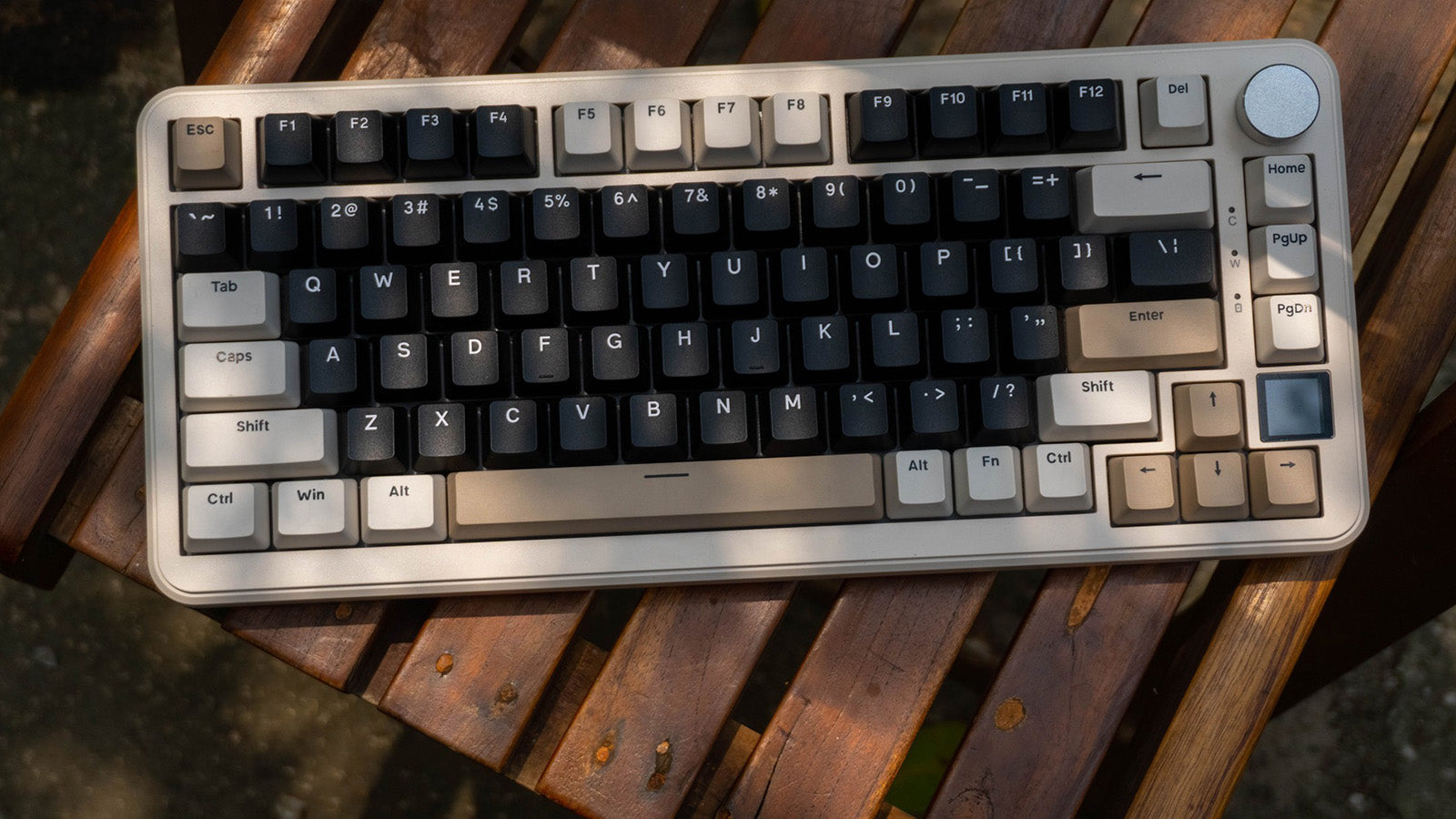Mechanical keyboards are beloved for their satisfying clicky feedback and long-lasting build, making them a go-to for serious typers and gamers alike. But even these durable tools aren't immune to mishaps and everyday wear and tear. In our guide, we'll tell what can knock a mechanical keyboard out of commission and share some handy tips to keep yours clicking away happily for the long haul. Whether you're a seasoned mechanical keyboard user or just getting your fingertips on one, knowing how to dodge these common pitfalls is key to enjoying that dependable typing experience for as long as possible.
1. Physical Impact and Usage
Drops and Impacts
A mechanical keyboard can take a hit or two, but it’s not invincible. Dropping your keyboard or banging it too hard can lead to what's called mechanical failure. This means the switches beneath the keys—which are like tiny mechanical "hearts" beating under each cap—can get damaged, or the board inside can crack. Such shocks can make keys unresponsive or inconsistent when pressed.
To keep your keyboard safe, always move it with care. When transporting it, especially if you're taking it to a gaming event or work, cushion it in a padded sleeve or a case designed for keyboards. This is like giving your keyboard its own little shock-absorbent bunker.
Aggressive Typing and Keycap Wear
Hammering on the keys can wear out the keycaps over time. Not only does this make the letters fade, but the constant pressure can also affect how the switches underneath perform.
So, how do you handle this? Lighten up—a gentler touch can actually improve your typing speed and accuracy over time, not to mention save your keyboard from early retirement. Practice typing with just enough force to register the keypress. Your keyboard will thank you with a longer life, and your fingertips will probably feel less strained, too.

2. Environmental Factors
Dust, Debris, and Pet Hair
Even the tiniest particles you can't see—like dust, crumbs, and pet hair—can play havoc with your mechanical keyboard's inner workings. They sneak in beneath the keys, clogging up the switches and causing sticky or unresponsive keys, which can interrupt your flow whether you’re working or gaming.
What's the best defense? Regular cleaning is key. A blast of compressed air can dislodge lurking debris, and for a thorough cleanup, remove the keycaps every so often to gently clear out any unwelcome grit with a soft brush or cloth. Making this part of your routine can prevent particles from becoming a problem.
Battling Temperature Extremes
Believe it or not, temperature swings are tough on mechanical keyboards. Intense heat can cause plastic parts to warp and lubricants to dry out, compromising smooth keystroke action. On the flip side, cold temps can make materials brittle, leading to cracks and breaks.
The ideal storage solution? Keep your mechanical keyboard in an environment with stable, room-temperature conditions, away from direct sunlight and away from the chills, especially if you're not planning on using it for a while. Treating your keyboard to a consistent, moderate climate will help maintain its structure and functionality for years to come.

3. Liquid Spills and Humidity
The Dreaded Spill
A splash of liquid may seem harmless, but for a mechanical keyboard, it's a recipe for disaster. Liquids can short-circuit the complex electronics within, leading to immediate malfunctions or corrosive damage over time. If you spill a drink on your keyboard, act fast—unplug it, flip it upside down to drain out as much liquid as possible, and gently blot the excess with a towel. Resist the urge to use a hairdryer as the heat can warp internal components; instead, let it air dry completely, which might take a day or two.
Beware, even after a thorough drying, corrosion can quietly set in, breaking down connections and causing keys to fail months later.
Humidity
It's not just spills that threaten keyboards—humidity does too. Moisture from the air can sneak into the circuitry over time, rusting metal parts and degrading electronic contacts. If you're living in a damp climate, consider using a dehumidifier in the room where you keep your keyboard.
To further safeguard your device, store it in a cool, dry place when not in use. Additionally, regular maintenance, like occasionally opening up the keyboard to clean out any moisture and dust, can help prevent the gradual accumulation of humidity-related damage, ensuring your mechanical keyboard remains a reliable tool for your digital endeavors.
4. Electrical Surges and Compatibility Issues
Surviving the Surge
An electrical surge is essentially a sudden spike in voltage significantly above the designated level in a flow of electricity. When it comes to your mechanical keyboard, such surges can be lethal, instantly frying delicate electronic components beyond repair.
To defend against this electrical onslaught, using a surge protector is a must. These devices are designed to detect excess voltage and divert it away from your precious keyboard and other electronics. Additionally, be mindful of where you plug in your keyboard; avoid outlets that are known to be unstable or overburdened with multiple devices.
Mismatched Components
Using off-brand chargers, USB hubs, or other accessories not approved by the keyboard's manufacturer might seem harmless but can pose significant risks. Incompatible components may deliver incorrect voltages or cause erratic data transmission, leading to malfunction or even damage to your keyboard’s circuitry.
Always stick to accessories recommended by the keyboard maker. Keep an eye out for warning signs like your keyboard disconnecting randomly, failing to respond, or becoming unusually warm during use. These symptoms could indicate that all's not well with your setup, prompting a thorough compatibility check to keep your typing experience both smooth and safe.

5. Software Corruption and Firmware Failure
Software Corruption
Software corruption can sneak up and degrade your mechanical keyboard's performance. This may manifest as unresponsive keys, lag, or erratic behavior. Causes range from system updates gone awry to malware attacks, or even just software incompatibilities.
When you encounter such issues, start with the basics: reboot your computer, disconnect and reconnect the keyboard, and if necessary, uninstall and reinstall its drivers. Ensuring your antivirus is up-to-date can ward off malicious threats that might corrupt your keyboard's software.
Firmware Updates
Firmware is the low-level software programmed into the keyboard itself, dictating how it communicates with your computer. It's essential for everything from key mapping to RGB lighting controls. While updating firmware can bring improvements and new features, a botched update can leave your keyboard unusable.
To avoid this, only update your firmware through the official software provided by the manufacturer, ensuring your keyboard is connected directly to the computer (not via a USB hub) to maintain a stable connection. Keep your PC plugged in if it's a laptop, and don't interrupt the update process once started. These precautions help prevent incomplete installations, which could spell disaster. If an update fails, manufacturers often have recovery procedures in place, so check their support resources for guidance.
6. Neglect and Poor Maintenance
The Cost of Complacency
Ignoring regular maintenance of your mechanical keyboard is akin to skipping oil changes for your car—it can lead to decreased performance or even complete failure. A well-maintained keyboard feels better to type on and lasts significantly longer.
Set a routine: once a month, unplug your keyboard, gently shake out loose debris, and use compressed air to blow away dust from hard-to-reach places. Detach the keycaps and clean them in soapy water, letting them dry completely before reassembly. Wipe down the surface with a soft, slightly damp cloth to keep it looking fresh and functioning flawlessly.
Storing for Longevity
When your mechanical keyboard isn't in use, proper storage is crucial to prevent wear and tear. Avoid piling objects on top of it which can press down on the keys and store it in a cool, dry place away from direct sunlight to prevent discoloration and material degradation.
Consider investing in a keyboard cover to shield against dust and accidental spills, and if you're taking an extended break from using it, store it in its original box or a protective sleeve. Tailored keyboard cases can offer cushioning and protect against environmental factors, ensuring that your keyboard remains in peak condition for your return.
Ensure the Endurance of Your Mechanical Keyboard
Safeguarding your mechanical keyboard from potential damage is an essential part of owning and enjoying the device. By understanding the risks posed by physical impacts, environmental factors, liquid exposure, electrical threats, software problems, and neglect, you can take proactive measures to prevent harm. Regular maintenance, careful handling, and appropriate storage are simple yet effective practices that will extend the life of your keyboard. Remember, a little attention goes a long way in preserving the clicky satisfaction and reliable performance of your mechanical keyboard, making it not just a tool but a trusty companion in your digital adventures.





Leave a comment
This site is protected by hCaptcha and the hCaptcha Privacy Policy and Terms of Service apply.